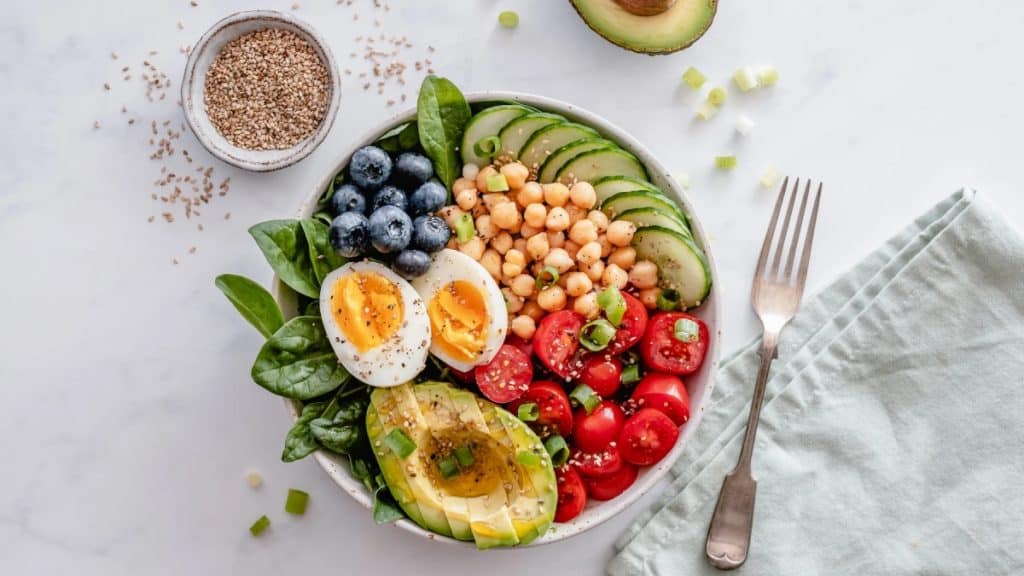Embarking on a fitness journey involves more than just spending hours at the gym. A well-balanced diet is crucial to truly achieving your workout goals, whether they involve muscle gain, fat loss, or boosting endurance. Central to this is understanding and balancing macronutrients—carbohydrates, proteins, and fats—tailored to your specific needs. This article delves into the essentials of meal planning for fitness, providing guidance on balancing your macros and structuring your diet to support your workout regimen.
Understanding Macronutrients
Macronutrients are the primary nutrients required in large amounts to provide energy and support bodily functions. Each macro plays a unique role in fitness and performance. Carbohydrates are the body’s primary energy source, especially important for high-intensity and endurance workouts.
They fuel your muscles and brain, aiding in performance and recovery. Proteins are essential for muscle repair and growth, helping to rebuild muscle tissues that break down during exercise. Though often misunderstood, fats are a concentrated energy source that supports cell function and hormone production, playing a crucial role during prolonged low-intensity activities.
Balancing Macros Based on Fitness Goals
Muscle Gain
Protein intake is paramount for those aiming to build muscle, but a balanced diet including adequate carbs and fats is also necessary. A diet for muscle gain might typically consist of 25-30% protein, 45-55% carbohydrates, and 20-30% fats. A protein-rich breakfast such as scrambled eggs with whole grain toast and avocado is a great way to start the day. Mid-morning snacks could include a protein shake or Greek yogurt with a handful of nuts.
Grilled chicken breast, quinoa, and a mix of vegetables provide a balanced meal for lunch. In the afternoon, a snack like cottage cheese with fruit or a protein bar can keep you fueled until dinner, which might include baked salmon, sweet potatoes, and steamed broccoli. An evening snack of a casein protein shake or a small bowl of cottage cheese can help with overnight muscle repair.
Fat Loss
Maintaining a caloric deficit while ensuring sufficient protein intake to preserve muscle mass is key when focusing on fat loss. A typical macro breakdown might include 30-35% protein, 30-40% carbohydrates, and 25-35% fats. A smoothie with protein powder, spinach, berries, and almond milk makes for a nutritious breakfast. Consider a small apple with a handful of almonds for a mid-morning snack.
Lunch could be a large salad with grilled chicken, mixed greens, cucumbers, and a vinaigrette dressing. In the afternoon, celery sticks with hummus make for a light yet satisfying snack. Dinner might include stir-fried tofu with a variety of colorful vegetables and a small portion of brown rice. For an evening snack, a small piece of dark chocolate or a low-fat yogurt can be a perfect end to the day.
Endurance Training
Endurance athletes need a diet rich in carbohydrates to sustain long periods of activity. Proteins and fats are also important but play a secondary role in energy provision. A common macro distribution for endurance training might include 15-20% protein, 55-65% carbohydrates, and 20-25% fats. Start your day with oatmeal topped with banana slices, chia seeds, and a drizzle of honey. A mid-morning snack of whole grain crackers with peanut butter provides a good balance of carbs and fats.
For lunch, whole grain pasta with lean ground turkey and tomato sauce and a side salad offer a substantial meal. In the afternoon, a fruit smoothie with protein powder and a few nuts can keep you energized. Dinner might consist of grilled chicken, quinoa, and mixed vegetables. An evening snack of a small bowl of mixed berries or a slice of whole-grain bread with almond butter can help maintain energy levels.
Smoothie Prep for Fitness
Smoothies are an excellent and convenient way to incorporate essential nutrients into your diet, especially for those with busy schedules. They can be tailored to meet your specific macro needs and are perfect for pre-or post-workout nutrition.
Benefits of Smoothies
- Quick and Easy: Preparing a smoothie takes just a few minutes, making it an ideal option for busy mornings or post-workout recovery.
- Customizable: You can easily adjust the ingredients to fit your macro requirements, whether you need more protein, carbs, or healthy fats.
- Nutrient-Dense: Smoothies can be packed with vitamins, minerals, and antioxidants from fruits and various high-value vegetables, promoting overall health.
Tips for Meal Prep and Consistency
To ensure consistency and avoid unhealthy choices, consider these meal prep tips. Plan ahead by designing your weekly menu and grocery list based on your macro needs. Batch cooking is effective—prepare large quantities of staples like grilled chicken, quinoa, and roasted vegetables that can be used throughout the week. Use meal prep containers to portion out meals and snacks, making sticking to your macro distribution easier.
Rotate different protein sources, vegetables, and whole grains to keep your meals interesting and nutritionally diverse. Additionally, don’t forget the importance of staying hydrated. Water plays a critical role in overall health and performance.
Keeping Ahead of Your Workout Diet
Balancing macronutrients in your diet is essential to support your fitness goals, whether you’re aiming to build muscle, lose fat, or enhance endurance. By understanding the role of each macro and planning your meals accordingly, you can optimize your nutrition to fuel your workouts and achieve better results. Meal planning and preparation are key strategies to maintain consistency and avoid the pitfalls of unhealthy eating habits. Embrace these dietary practices to complement your fitness journey and promote long-term health and performance.

